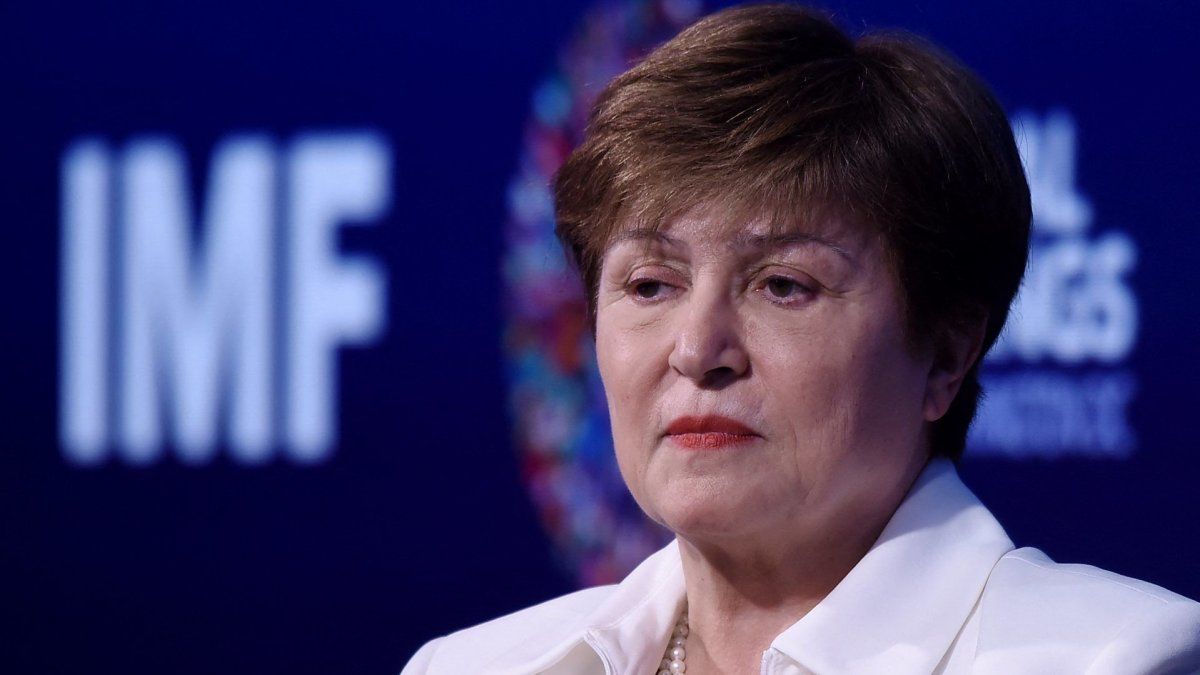The statement states that:
- “The (Argentine) authorities met all performance criteria established as goals for the end of March 2022,
- “Initial progress has been made on the structural reform front”
- “The authorities of the Argentine Government remain committed to achieving the fiscal objectives, monetary financing and the accumulation of annual reserves”
The Fund also points out that “decisive implementation of the program’s policies will be critical to support Argentina’s economic recovery, strengthen macroeconomic stability and make further progress in addressing the deep-seated challenges of laying the foundations for more sustainable growth and inclusive”.
Following the Board’s decision, the head of the IMF, Kristalina Georgiev, I declare that “The Argentine economy continues to recover after the pandemic, but is being affected by shocks associated with the war in Ukraine and greater uncertainties at the global level..
In this sense, Georgieva considered that the higher prices of food and energy “they are adding inflationary pressures and defying the fiscal and reserve accumulation objectives”. Despite these shocks, the director of the Fund stressed that the country reached all the quantitative goals agreed in the program.
https://twitter.com/KGeorgieva/status/1540450261675786240
The IMF Executive Board completed today the first review of the Extended Fund Facility arrangement for #Argentina. This marks the conclusion of an important initial step under the program to support ongoing economic recovery and strengthen stability.
— Kristalina Georgieva (@KGeorgieva) June 24, 2022
He also recalled that the quarterly goals were recently made more flexible and that the recently modified national budget for 2022 reformulates spending priorities, contemplating greater energy subsidies and “adequate social assistance to protect vulnerable sectors from the shock of food prices.”
However, the head of the IMF considered that Meeting the 2.5% primary deficit target “is essential to moderate domestic demand, limit financing of the deficit, and support the accumulation of reserves.”
warnings
The report presented by the technicians maintains that the program continues to be subject to “exceptional risks” arising from the war in Ukraine and the tightening of international financial conditions.
The staff also warns that “high inflation, if not addressed, can fuel social unrest and weaken political support for the program” From the bottom. And he adds that “These risks cannot be fully mitigated through the designed program or contingency plans.”
In the field of policy recommendations, the 105-page report maintains that “Strong implementation of the program remains essential to curb persistently high inflation and ensure a decisive improvement in reserve coverage.”
In this regard, it points out that in order to achieve the fiscal objective established in the agreement, it will be necessary to “more rigid fiscal policies in the second part of the year through a reorientation of expenses that give rise to greater spending on energy subsidies and social assistance.”
Also refers to the need to maintain a monetary and exchange rate policy framework that is “essential” to have positive interest rates and preserve the competitiveness of the exchange rate.
These actions are considered “critical” to deepen the domestic peso market and reduce dependence on Central Bank financing.
At the same time, it considers it necessary to continue with the efforts aimed at obtaining external financing from multilateral and bilateral credit organizations, including a restructuring agreement with the Paris Club.
The IMF also considers that it is “essential” continuity in the implementation of structural reforms. On the energy frontapart from the efforts to update the rates” It will be necessary to develop a medium-term plan aimed at reforming the energy sector, with the support of the World Bank as a priority to unlock the country’s vast energy potential.
It also raises the need to “early actions” for improve tax collection, the efficiency and management of public spending, the effectiveness of regimes against money laundering and the financing of terrorism, among others.
Commitment
Georgieva, in addition to acknowledging the commitment of the authorities with the goals of the program, in any case emphasized that “Sustained efforts are needed to improve tax compliance, reduce energy subsidies and strengthen public finance management.”
“The (Argentine) authorities remain committed to the agreed multifaceted strategy to deal with persistently high inflation, including continuing to normalize policy interest rates in a manner consistent with achieving positive real interest rates”, Georgieva maintained.
According to the director of the IMF, in the current context of volatility, efforts to strengthen and deepen the debt market in pesos “remain critical, along with the firm implementation of fiscal objectives”. He also raised the need for the country to receive help from its international partners to strengthen reserves and advance reforms.
Regarding the structural reform agenda, the Managing Director maintained that progress is needed that includes the management of public expenditures, Central Bank finances, anti-money laundering and anti-terrorism financing regimes, and improving regulatory frameworks.
Source: Ambito
David William is a talented author who has made a name for himself in the world of writing. He is a professional author who writes on a wide range of topics, from general interest to opinion news. David is currently working as a writer at 24 hours worlds where he brings his unique perspective and in-depth research to his articles, making them both informative and engaging.




